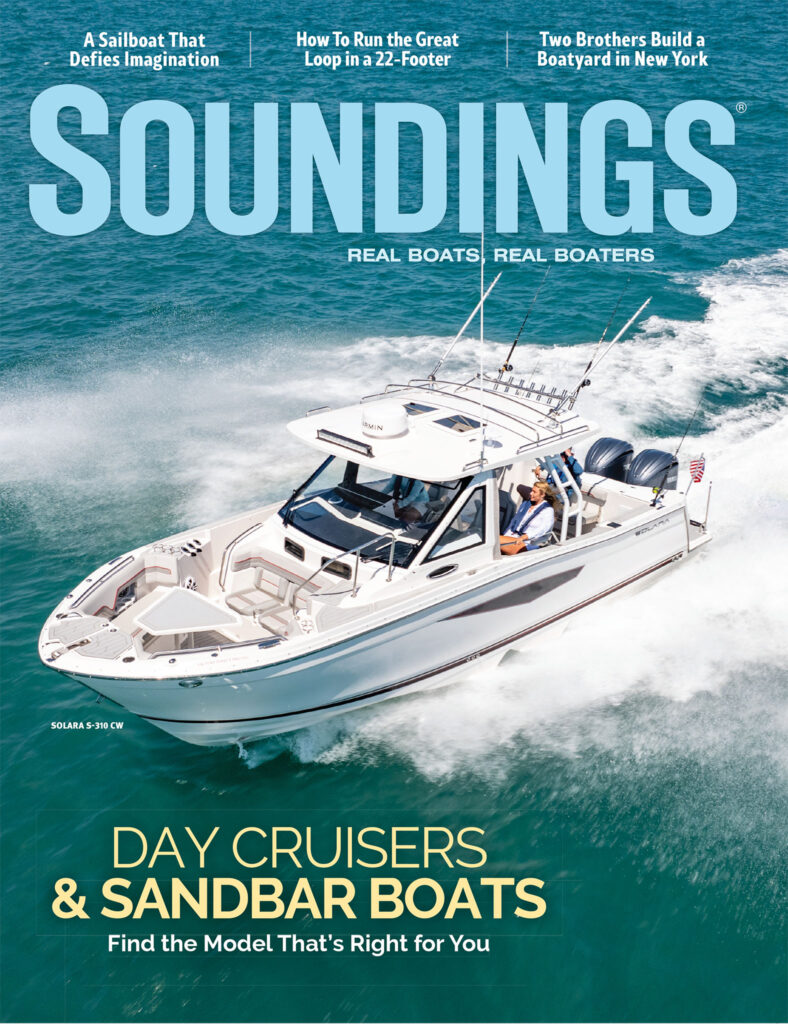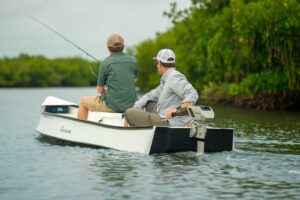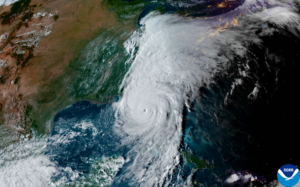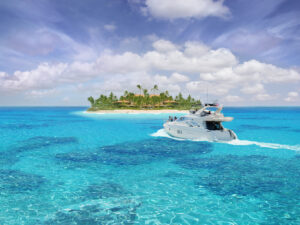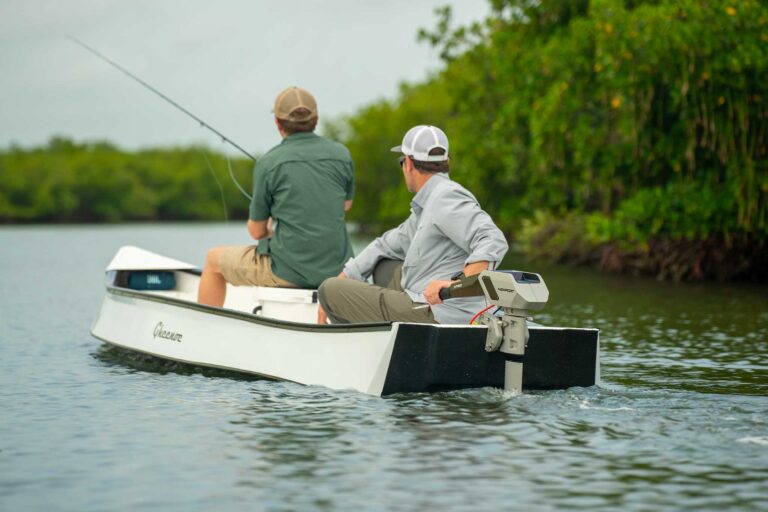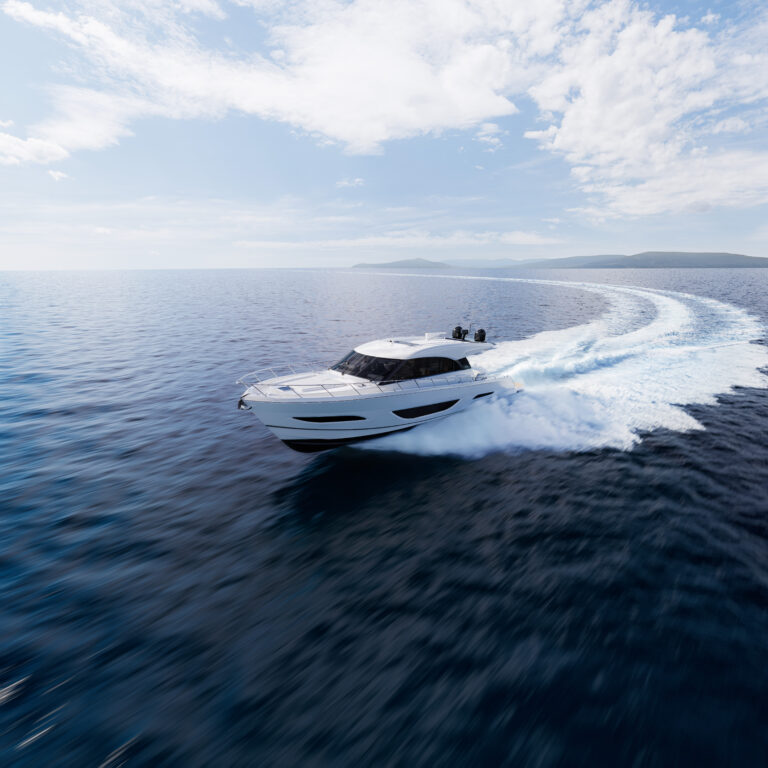The author of a new book revisits the sinking of the pilot boat Can Do and the death of its crew
The author of a new book revisits the sinking of the pilot boat Can Do and the death of its crew
During the infamous New England blizzard of 1978, the crew of a seaworthy pilot boat named Can Do did its best to rescue a merchant ship off Salem, Mass., but the forces of nature were too strong. In the end, the Can Do simply couldn’t, and the ensuing tragedy left New England’s maritime community shaken.
What happened aboard the 49-foot pilot boat, the Greek tanker Global Hope, and the two Coast Guard vessels that valiantly plowed through mountainous seas in gale-force winds is detailed in a new book, “Ten Hours Until Dawn: The True Story of Heroism and Tragedy Aboard the Can Do,” written by Michael J. Tougias and published by St. Martin’s Press.
Tougias stumbled upon the story while conducting research for a photo book about the ’78 blizzard, which on Feb. 6 and 7 dumped 27 inches of snow on Boston, paralyzing the city and much of Southern New England for more than a week. A newspaper clipping caught his eye, and he was quickly intrigued. After all, five good Samaritans aboard Can Do died, yet some from the BayState’s seafaring towns had insinuated that the deaths were the result of foolhardiness, an act perhaps fueled by false bravado and too many beers.
Tougias, 50, who lives in Franklin, Mass., relied on dozens of interviews and recorded radio messages from Can Do as he meticulously reconstructed the chronology of events leading to disaster. Unlike Sebastian Junger’s “The Perfect Storm,” which depended by necessity on speculation to fill in the gaps, Tougias’ book is based on actual conversations. For example, key bits of information were contained in marine radio conversations between Can Do skipper Frank Quirk Jr. and the Coast Guard, provided to Tougias by the late captain’s son, Frank Quirk III of Peabody, Mass., and by the estate of the late former Salem, Mass., shipping agent Warren Andrews, who also recorded the chatter.
By all accounts, the steel-hulled Can Do was a proven vessel, ruggedly constructed and with experienced and likable skipper Quirk at the helm, a man known for his competence at sea and willingness to help others. According to Tougias, Quirk had been monitoring the storm and its impact on vessels at sea when he heard that a 44-foot Coast Guard patrol boat, with four young crewmen aboard, was in jeopardy. The patrol boat had been dispatched to aid the floundering Global Hope and its 20 crewmembers, but lost its radar and power en route.
“That’s when he decided to act,” says the author. “There were 30-foot seas and 50-knot winds.”
Former Coast Guardsman Robert McIlvride was captain of the 44-footer. In an interview with Tougias, he described the roar of the waves and the terror of getting knocked down. The Coast Guard sent the 95-foot cutterCapeGeorge to rescue the patrol boat, but shortly after leaving Boston it, too, was in serious danger. The cutter captain can be heard on tape trying to find his bearings among the many shoals. His words: “We are presently lost. I repeat, we are presently lost. We are trying to find something to go by.”
“The men I interviewed who were on that cutter thought they were going to die,” says Tougias. “It was that bad out there.”
Weather reports showed winds topping 90 mph and waves cresting over 40 feet. Eventually, the 44-footer was able to restart its engines and regain its radar, enabling the boat to find Baker’s Island and the Beverly landmass, where it safely docked.
Although the Global Hope managed to ride out the storm, the situation aboard Can Do worsened. “In hindsight, you realize that the Global Hope was never really in jeopardy,” says Tougias. “But Frank Quirk knew the guys aboard the 44-footer; he had trained them. So even if the Coast Guard had told him not to go, ordered him to stay put, he would have gone.”
At 3:30 a.m. Feb. 7, the final radio transmission was sent. Quirk’s voice remained calm and steady. “From his last radio transmissions, it was clear that the Can Do’s windshields had been knocked out and the electrical system flooded,” says Tougias. “The crew had stuffed a mattress in the hole where the pilothouse windshield had been, and Quirk was using a hand-held VHF. We know he had been injured by flying glass and was bleeding.
“Toward the end, it’s likely the crew aboard the Can Do knew they weren’t going to make it, but you’d never know that listening to the tapes,” says Tougias, adding that Quirk, 49, and crewman Charlie Bucko, 29, a former Coast Guardsman and decorated Marine, were still doing what needed to be done. “You have to give them credit for that.”
The three other Massachusetts men who died were Norman David Curley, 35, of Gloucester, Kenneth Fuller, 34, and Donald Wilkinson, 36, both of Rockport.
The day after the storm, two of the bodies washed ashore in rocky Nahant, Mass., with two more in nearby Marblehead. The last was found aboard the sunken wreck, discovered a week later in 30 feet of water. The victims left behind three widows and eight children.
Tougias says he hopes his book will finally put to rest any lingering doubts about the crew’s decision to head out into the teeth of the storm. “They were all very brave,” he says. “It’s clear from eyewitnesses and from the tapes that these men had not been drinking. Charlie and Frank were just extraordinary men. The book is mostly about them. It’s a character-driven book. When the boat was found after the storm, Charlie’s body was still in the engine room. He was always saying, ‘Something goes wrong, stay with the boat.’ ”
For more information on the author or to order an autographed copy of the book, visit www.michaeltougias.com.

